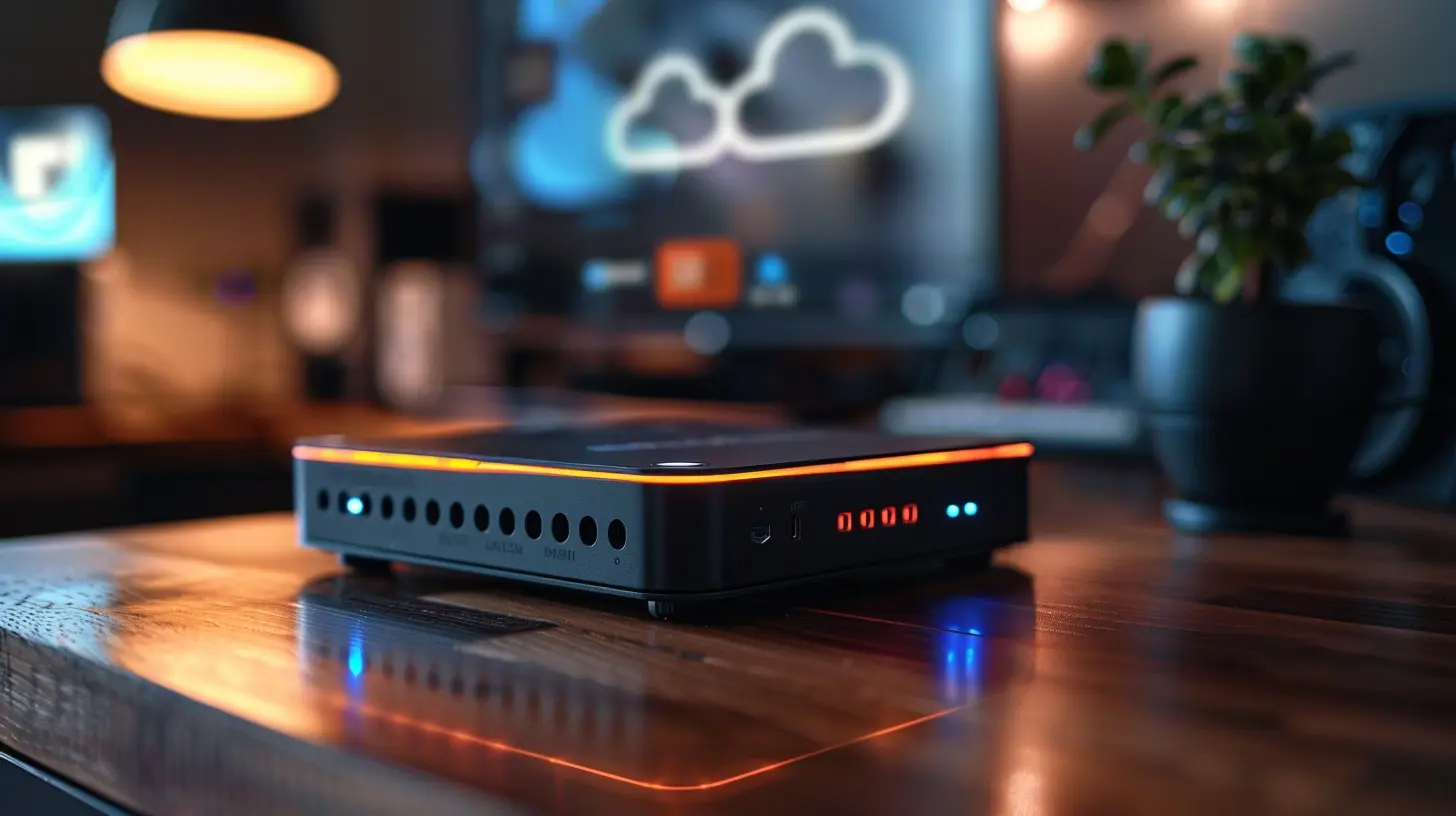How 5G is Accelerating the Growth of Cloud Computing
29 August 2025
The world of technology is evolving rapidly, and two of the biggest game-changers in recent years are 5G and cloud computing. While cloud computing was already transforming industries, the arrival of 5G technology has given it an unprecedented boost. With ultra-fast speeds, low latency, and seamless connectivity, 5G is acting as a catalyst for cloud-based applications and services.
So, how exactly is 5G accelerating cloud computing? Let’s break it down and see why businesses, developers, and everyday users should care about this evolving synergy. 
Understanding 5G and Cloud Computing
Before we dive into the impact, let’s first understand what these two technologies bring to the table.What is 5G?
5G is the fifth generation of mobile networks, offering speeds up to 100 times faster than 4G LTE. But speed isn't the only advantage. It also delivers:- Ultra-low latency (reducing delay in data transfer)
- Higher bandwidth (handling more devices at once)
- More reliability (consistent, stable connections)
What is Cloud Computing?
Cloud computing eliminates the need for physical servers by allowing storage, applications, and computing resources to be accessed via the internet. Companies leverage cloud computing to store data, run applications, and enable remote work without heavy infrastructure investments.
How 5G is Accelerating the Growth of Cloud Computing
With 5G and cloud computing working together, businesses and individuals are experiencing unmatched efficiency and performance. Here’s how:1. Ultra-Low Latency Enhances Cloud Performance
Latency—the delay before data is transferred—has always been a challenge for cloud-based applications. With 5G's ultra-low latency (as low as 1 millisecond), cloud-based services now respond in real-time.This is a game-changer for industries like:
- Gaming – Cloud gaming platforms (like NVIDIA GeForce NOW & Xbox Cloud Gaming) run smoother, minimizing lag.
- Healthcare – Remote surgeries and telemedicine rely on instant data processing, which 5G makes possible.
- Finance – Stock trading platforms that depend on millisecond-level speed benefit from the reduction in latency.
With 5G-powered cloud computing, everything happens instantaneously, creating a seamless user experience.
2. Faster Data Transfer for Cloud Storage & Backup
Ever tried uploading large files to Google Drive or Dropbox and felt like it took forever? 5G is fixing that.With faster upload and download speeds, cloud storage services become much more efficient. Businesses that rely on real-time data exchange—such as media companies, designers, and engineers—no longer have to deal with frustrating wait times.
Plus, automatic cloud backups are now faster and more reliable, minimizing the risk of data loss.
3. Boosting Edge Computing Capabilities
Edge computing means processing data closer to its source rather than relying on distant data centers. While cloud computing is powerful, it sometimes struggles with large-scale real-time applications.5G bridges this gap by enabling faster data transfer to edge devices like:
- Self-driving cars – These vehicles need split-second decision-making, which edge computing + 5G can provide.
- Smart factories (Industry 4.0) – Machines equipped with AI sensors process data in real-time for high efficiency.
- IoT devices – Smart home gadgets, security cameras, and wearables run more smoothly with 5G-powered edge computing.
Simply put—5G supercharges edge computing, making cloud-based applications faster, smarter, and more efficient.
4. Enabling Seamless Remote Work & Collaboration
The remote work revolution is here to stay, and cloud computing is its backbone. However, slow internet speeds and network congestion can make remote collaboration a nightmare.With 5G's lightning-fast speeds and high bandwidth, cloud-based tools like Zoom, Microsoft Teams, and Google Workspace run without lag or interruptions. This means:
- Crystal-clear video calls
- Instant file sharing
- Real-time document collaboration
As companies shift toward hybrid and fully remote work models, the combination of 5G and cloud computing ensures productivity isn’t compromised.
5. Unlocking the Full Potential of AI & Big Data
Artificial Intelligence (AI) and Big Data rely on massive amounts of processing power. Because of this, they depend heavily on cloud computing. The problem? 4G networks often struggle to keep up with the scale of data transfer needed.With 5G's ultra-fast speeds, cloud-based AI applications can process, analyze, and distribute data at record speeds. This is critical for industries such as:
- Healthcare – AI-driven diagnostics and real-time patient data analysis
- Retail – Personalized shopping experiences powered by AI
- Cybersecurity – AI-driven threat detection that stops cyberattacks before they happen
Thanks to 5G, cloud-based AI is now more powerful and efficient than ever.
6. Powering the Future of AR & VR
Augmented Reality (AR) and Virtual Reality (VR) are exciting technologies, but they demand huge amounts of data processing and bandwidth. Traditional networks cannot handle this efficiently, causing lag, buffering, or poor-quality experiences.With 5G’s high-speed, low-latency connections, these experiences become truly immersive. Imagine:
- Virtual meetings that feel like in-person interactions
- AR-powered navigation that overlays real-world directions
- Realistic VR gaming without annoying lags or motion sickness
By leveraging 5G-powered cloud computing, AR & VR applications are becoming more mainstream for entertainment, training, education, and more. 
Challenges Ahead: Are There Any Downsides?
Of course, no technology is perfect. While 5G is accelerating cloud computing, there are still some challenges:- Infrastructure Costs – Deploying 5G worldwide requires massive investment in network infrastructure.
- Security Concerns – Faster speeds mean faster cyberattacks; companies must upgrade their cloud security measures.
- Limited Coverage – 5G networks are still expanding; rural areas may not experience its benefits for years.
However, despite these challenges, the advantages far outweigh the drawbacks. With continuous innovation, 5G-powered cloud computing will become more accessible and secure over time. 
Final Thoughts
5G and cloud computing are the dynamic duo shaping the future of technology. From faster storage and AI advancements to seamless remote work and immersive AR experiences, the possibilities are endless.As 5G networks expand worldwide, businesses and consumers alike will experience smarter, faster, and more reliable cloud-based services. The way we work, play, and interact with the digital world is transforming—and this is just the beginning.
What are your thoughts on 5G and cloud computing? Are you excited about the possibilities? Let’s discuss in the comments!
all images in this post were generated using AI tools
Category:
Cloud ComputingAuthor:

Marcus Gray
Discussion
rate this article
1 comments
Tank McGinnis
5G and cloud computing: a match made in tech heaven! It's like giving your internet a triple shot of espresso—faster uploads, smoother streams, and no more buffering-induced existential crises!
September 11, 2025 at 3:03 AM

Marcus Gray
Absolutely! 5G's speed and low latency are revolutionizing cloud computing, enhancing user experiences and eliminating buffering delays, truly a game-changer for technology!


